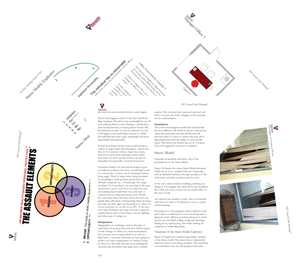
Security Training Center® News
July 20, 2023
Top Tips for Security Guards Responding Safely to an Alarm
We've provided plenty of advice on how security guards should handle events, including angry shoppers, combative bar patrons, and more. But there's another scenario that guards may be even more likely to face on a job: Hearing a security or hazard alarm.
While an alarm isn't as immediately dangerous as violence or threats, security guards should still know how to deal with it. Should they leave their post? Should they contact other emergency responders? Do they have an obligation to make sure employees or customers are safe? Will they be in charge of an evacuation if necessary?
These are good questions: Our roundup of the top tips can help security firms prepare their guards, offer the right training, and work with clients so alarms don't pose a problem.
Contacting Experts and Authorities Is Usually the Best Response
In general, security guards should not take direct responsibility for emergency alarms. That's not typically what they were hired to handle, and they don't have the expertise to handle it. They aren't in charge of the entire building and aren't expected to have full knowledge of an emergency response or escape plan.
Instead, security guards should help by immediately contacting an authority who is responsible for taking action. That may be a store manager or supervisor at a location. It could be the police if a break-in alarm is activated, or a fire department if a fire alarm goes off.
What happens if alarm systems already have remote monitoring and automatic responses? Then the security guard should focus on alerting supervisors and employees of the dangers.
Security Guard Safety Should Be a Priority
In general, security guards should avoid taking risks that aren't a part of their direct responsibilities. We've already discussed this when going over situations like shoplifting or burglary. While security guards can work to help prevent theft and restrict access, they should not run after fleeing thieves or detain shoplifters. This can lead to situations involving lawsuits and other repercussions.
Likewise, when emergency alarms sound, security guards should focus on their own safety. Unless it's part of their responsibilities, security guards should not feel a need to rush toward the source of an alarm or deal with the cause. Instead, they should focus on safety, first for themselves and then for others. In some high-risk situations (toxic fumes from a workplace fire, for example), guards should also have training in emergency exits and how to get out of a building quickly.
Some Alarms Are the Direct Responsibility of Guards
Certain alarms are an exception to these rules because they're part of a guard's duties while on the job. One of the best examples is an intrusion alarm while a guard is on patrol around a property. In this case, a guard should prepare and respond to the alarm to see what caused it, if it was a false alarm, etc. Safety is still a priority, but alarms like these intersect with a guard's duties. Proper response should be part of their training.
Another important example are guards specifically hired as emergency responders to certain alarms. These guards typically work for monitoring services and are on call to respond in lieu of the police or other public departments. In these cases, guards are the response to the alarm, and are typically contacted remotely by stores or other businesses.
Clients May Integrate Security Guard Response with Their Own Security Systems
When clients hire guards to monitor their security systems and watch for trouble, guards may be expected to respond to alarms these systems create. Of course, this can vary a lot depending on the client and the system.
The best course of action is to carefully go over the system with the client and clearly define what guards are responsible for. Guards will need training sessions and guidelines on what alarms mean and what their response should be. This will take extra prep time before guards are ready for their duties, so keep this in mind when scheduling and assigning shifts.
Public Areas and Fire Training Are Another Important Exception
In some circumstances, security guards should have fire training and specifically be prepared for a fire or similar emergency if an alarm sounds. Nightclubs, schools, and apartment buildings are all good examples. These exceptions absolutely require separate training for the security guard. That includes knowing the emergency exits, where fire extinguishers are located, and who to contact when a fire occurs.
Then guards should be able to safely direct people toward emergency exits and work to prevent any panic or chokepoints.
Final Notes
Remember, security guards who don't respond to alarms or who respond improperly could open the door for lawsuits involving negligence or bodily harm. It can be difficult to train guards for every different emergency alarm at each location, but an overview can still be helpful. When possible, always have security guard responsibilities clearly stated in the contract, and define if alarms are the responsibility of clients and their employees, or something that security guards should deal with.
Security Training Center® is a professional security guard training company. Our purpose to educate security personnel and organizations in the latest protocols and techniques to keep staff, property and other valuables safe. A proactive approach to security awareness prevents many problems from ever occurring, reducing risk to staff and liability. We teach early identification of potential problems and how to defuse conflicts before reaching crisis. Our staff and advisory board have decades of experience in military, law enforcement, executive protection, private security, defensive weapons and martial arts. Our training programs span the globe and are used on five (5) continents.
Original article posted by El Dorado Security Services Insurance Agency. Used with permission.
See Your Article Here!
Want to contribute an article to the Security Training Center® News? Click HERE to read our writing guidelines and submission process.
Information provided on this site is educational. It is not legal advice. Training does not guarantee licensing or employment.





